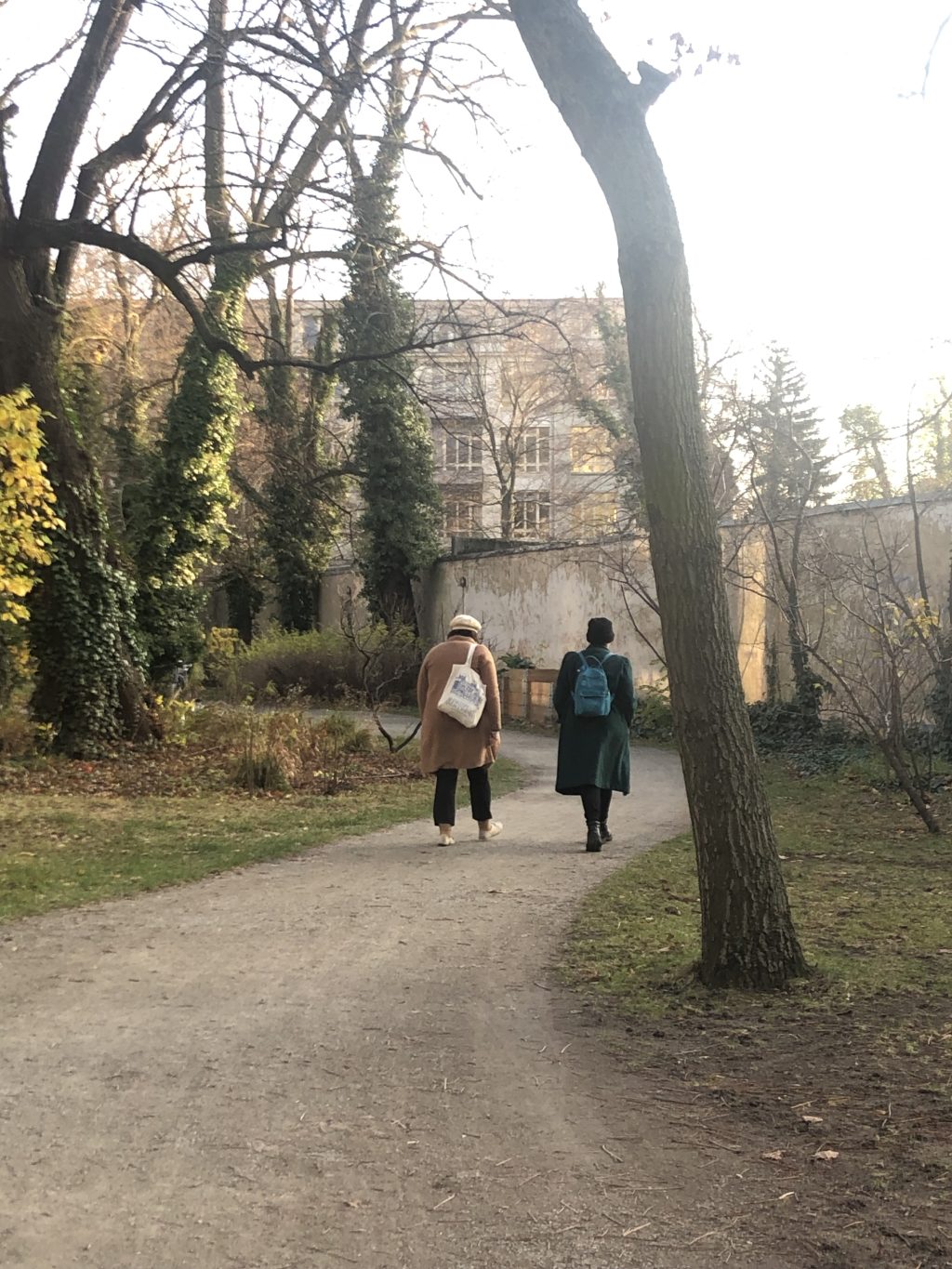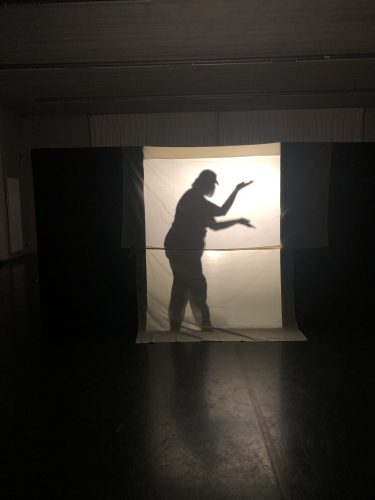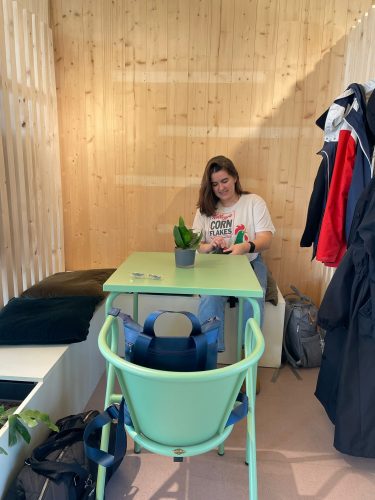
The Long and Painful Journey

Lindsey Ball and Kat Kaplan on the way to class at the Eden
The birds are singing and the sun is peeking out from the perpetual rain clouds here in Berlin. Spring is beginning to creep its way into our lives and I can feel the sunshine warming my soul as I soak up its rays through the Eden studio windows before class. It is a bittersweet moment as I realize my classes at Arthaus are about to end but my research and thesis construction will soon begin.
I’ve been thinking a lot about journeys lately, and the shape of things. At the start of this year in Berlin, I felt very shrouded, like I was mourning the time I spent in Chicago and the people I met there. The classes, strangely, reflected this feeling. We mostly studied tragic forms and the classics, nightmare worlds, grief, rage, and strange gods/demons. At the time, I thought of it as serendipity. I wasn’t in the place to be performing comedy or clown when I was feeling so dark and strange.
When we returned from our winter break, we returned to a space of comedy, mockery, and ultimately joy and pleasure. It felt right. I had finally settled a bit in Germany, I had gotten to know my cohort better and was feeling comfortable for the first time in a while. I stumbled across a quote from Lecoq in our bouffon module that said something to the effect of, the mocker earns the right to mock through his own suffering. I mentioned this to our main facilitator (and former co-teacher of Lecoq himself), Thomas Pratki, and I naively asked him, “Why didn’t you mention this while we were in this module?” He responded by saying, “Abbi, you’ve just spent three months suffering, of course you have earned the right to mock.”

Lindsey Ball helping me research shadow puppetry for my thesis
The more I think about this conversation we had, the more I begin to realize how much of this is by design. Columbia’s program is relatively new, but our program director, Michael Brown, and Thomas here at Arthaus have been teaching this work for many years. Naively, perhaps, I thought I was experiencing my feelings in a vacuum, but I was never alone in this experience. And the way in which the curriculum reflected, embraced, and supported where I was at is proof of that.

At a cafe near the studio
I’ll leave this formless reflection on one last gem from my conversation with Thomas because I think it sums things up better than I could: “When I created this program, I realized there is something about taking the long and painful journey that is fundamentally necessary. It is something that you cannot find in the short and joyful workshop. It takes its time. Sometimes, you don’t know what it is until two, three years down the line. It marinates.”
